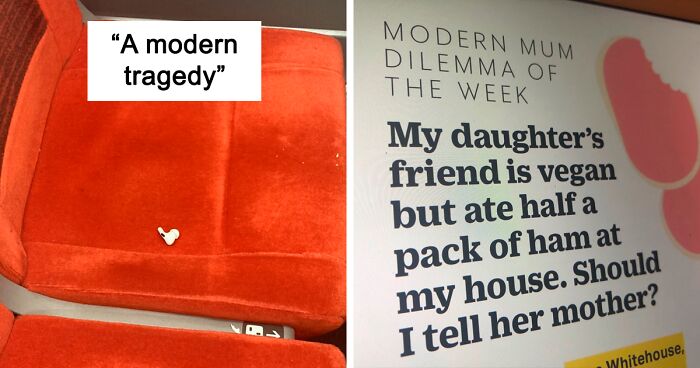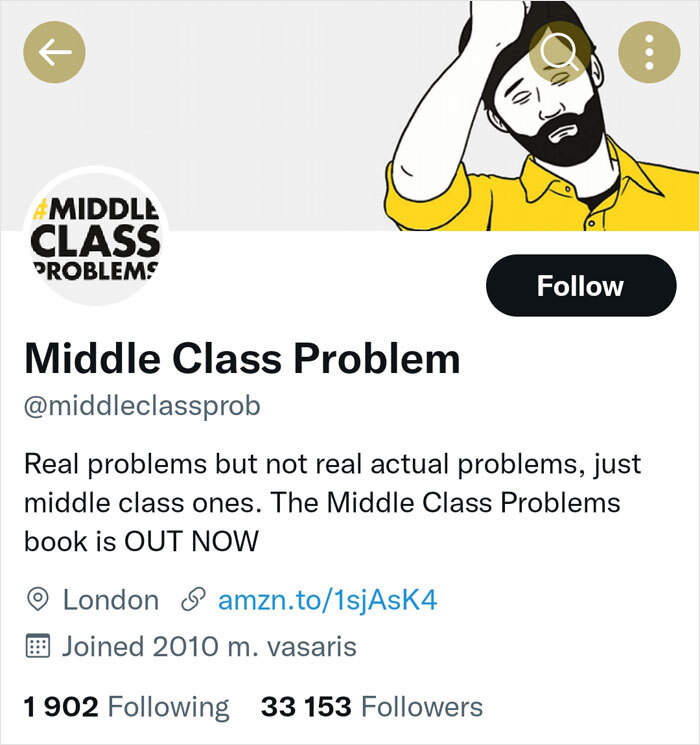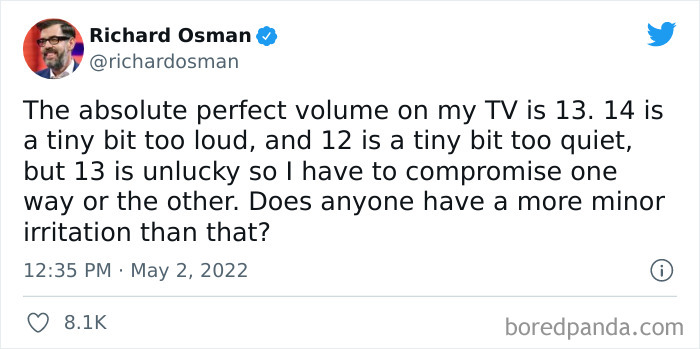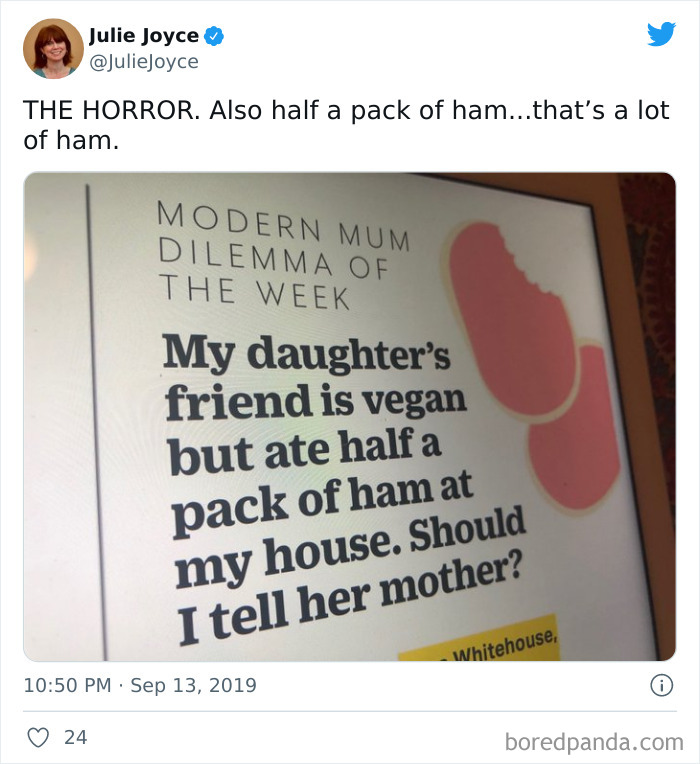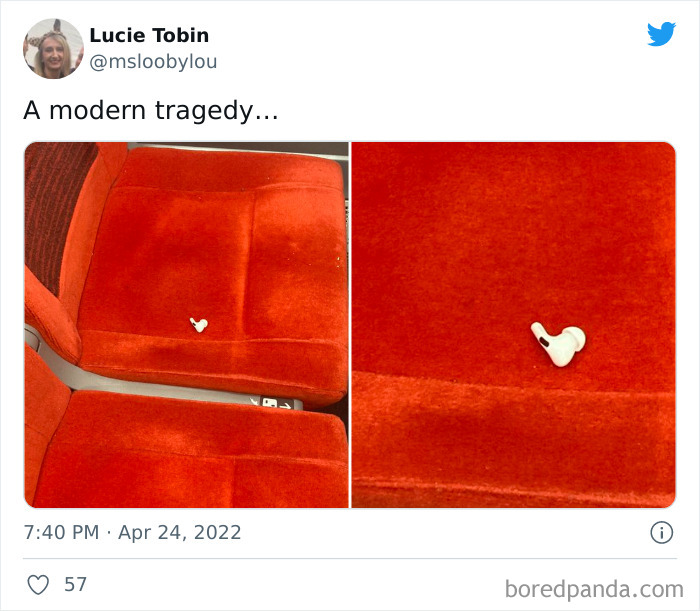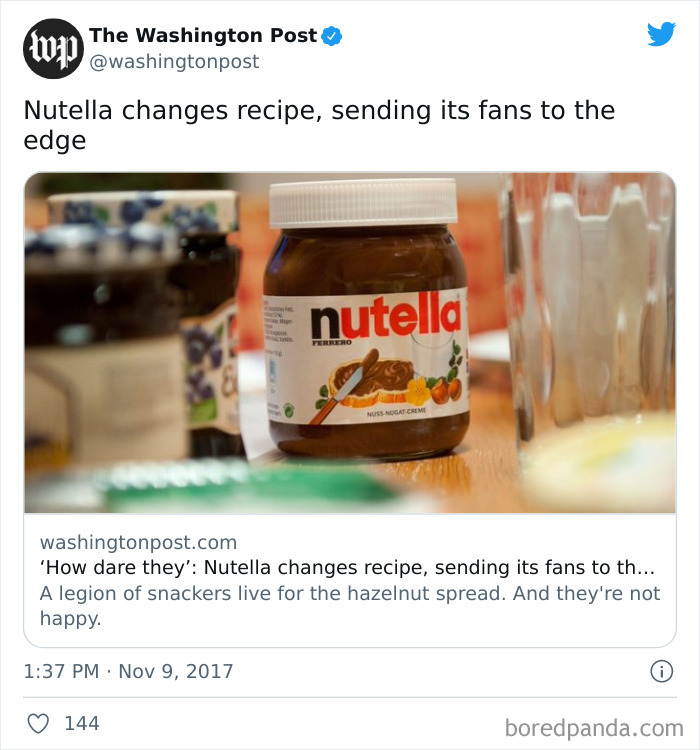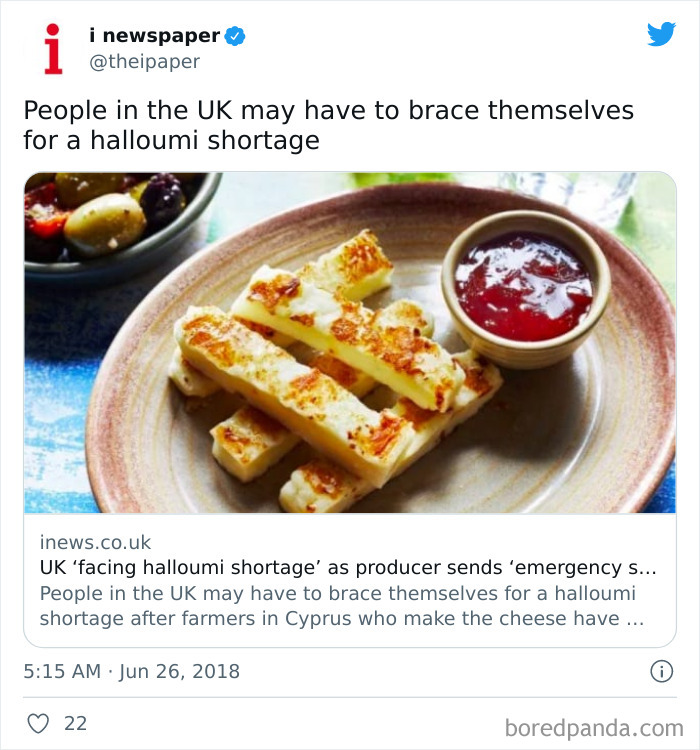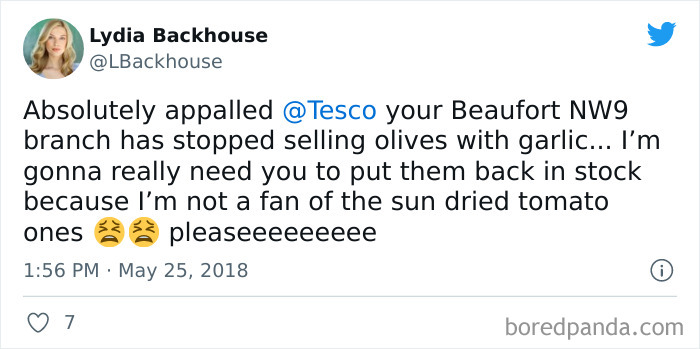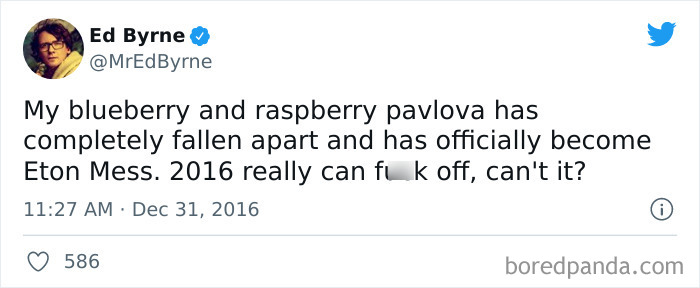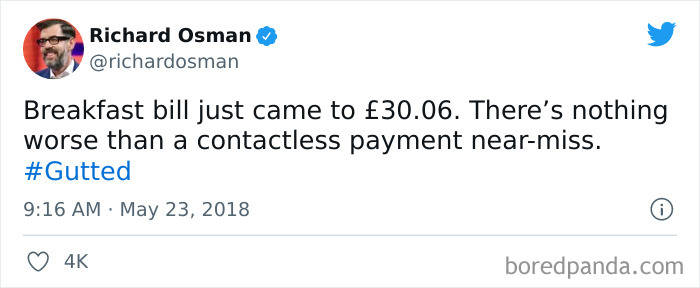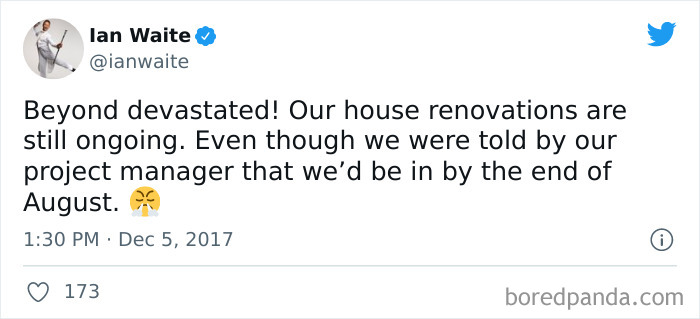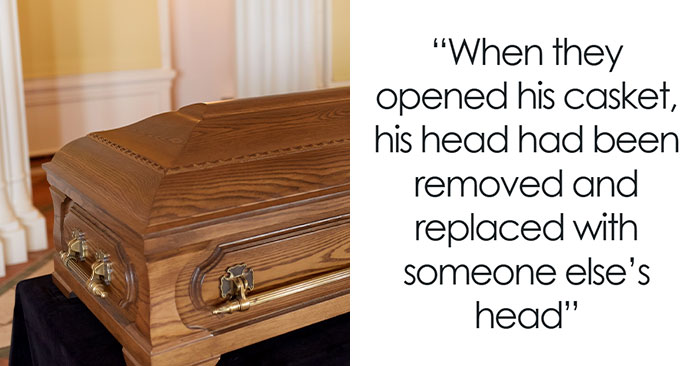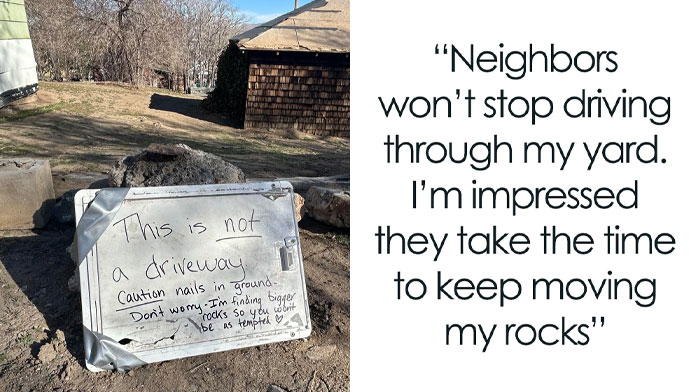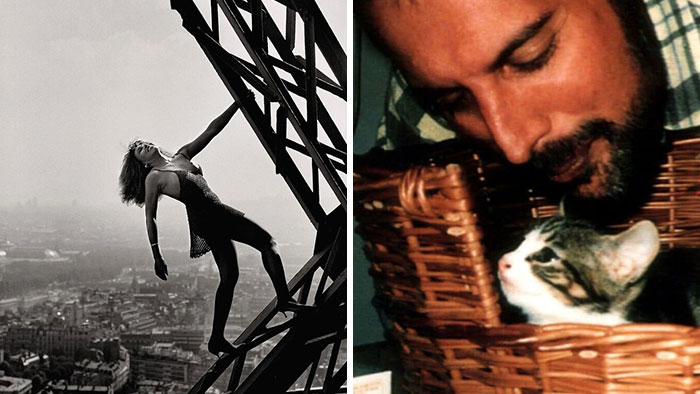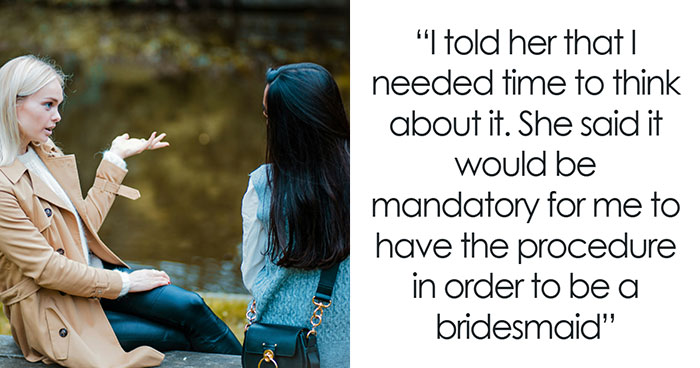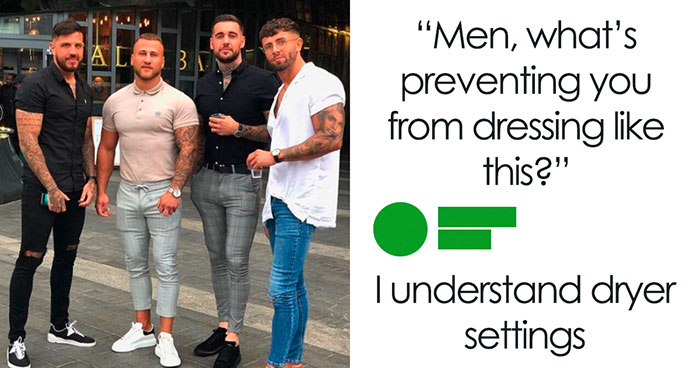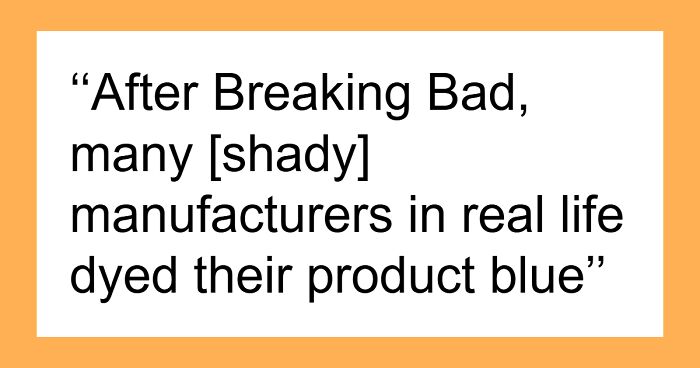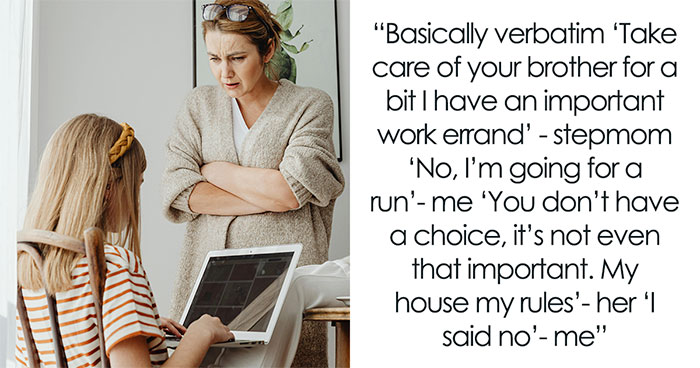We’ve all complained about minor inconveniences before. Whether it’s our favorite restaurant being out of the best meal on the menu or the coffee that we ordered coming out so hot that we have to painfully wait 2 minutes before drinking it. It’s totally normal to be annoyed about little things sometimes, but once we decide to publicly tweet those complaints, we’re just asking to be mocked.
Allow us to introduce you to “Middle Class Problem”, a Twitter account dedicated to sharing “real problems but not real actual problems, just middle class ones”. This page finds the most minor and insignificant complaints on Twitter and gives them a larger platform. While some of the tweets are self-aware and sarcastic, we can still enjoy poking fun at the idea that these are real issues. We’ve compiled a list of some of our favorite non-problem problems for you to read through, so don’t forget to upvote your favorites and share your thoughts in the comments below.
Then if you’re interested in another list featuring minor things that get under people’s skin, check out this Bored Panda piece next.
This post may include affiliate links.
The Middle Class Problem Twitter account has been around since February 2010 and has amassed over 33k followers in the past 12 years. The creator of Middle Class Problem, Benjamin Lee, even wrote a book under the same name as the page that was published in 2014, featuring a long list of tweets that qualify as middle class problems. The table of contents includes chapters on Eating In, Eating Out, Shopping, Quinoa, Drinking, Work, Technology, Christmas, The Help, At Home, On Holiday, and Looking Good.
In the introduction, Lee writes, “Since 2010, I’ve been following the lives of the middle classes on Twitter, highlighting the many plights suffered on a daily basis. For the first time, in this book you’re holding, I’ve collected the best examples of how frightfully inconvenient things can get.”
If you’re looking for an entertaining coffee table book, Middle Class Problems has received some great reviews from readers over the years. One person on Good Reads wrote, “We know that people on the other side of the world are starving, yet we complain through various social media that our waiter served both coffee and ice cream at the same time, that we got too much feta in our greek salads or ordered the wrong pizza size. This book lets us relate and laugh at each other's misfortunes. Definitely worth picking up!”
Another reader on Amazon said, “My wannabe posh co-worker loved it, he is now reflecting on his life and considering coming back down to earth.”
Mocking the wealthy has long been a popular form of comedy, so it’s no surprise that Middle Class Problem has become so popular. From classic literature like The Great Gatsby and The Importance of Being Earnest to popular sitcoms like Arrested Development and Schitt’s Creek, we love to critique the rich. Even if they’re not rich rich, just middle class per se, we can’t help but find amusement in their qualms about salads and soy candles. At the same time, most of us who will never get to experience the “lifestyle of the rich”, it’s fun to imagine what it must be like and mock their lack of self awareness.
Since F. Scott Fitzgerald’s classic novel was published, times have changed a bit. Although it wasn’t a sparkling depiction of the upper class, writer Benjamin Nugent argues that The Great Gatsby still glamorizes wealth. “I think that a great description of a particular experience is inevitably an advertisement for that experience.” Nugent went on to say that, “A great description of an experience that you, the reader, are excluded from, that is, an inaccessible experience, no matter what that experience is, tends to be compelling. Describe to the reader an experience from which that reader is excluded, and describe it beautifully, and what you write will tend to be like the green light in Gatsby.” Though readers enjoy criticizing the displays of wealth in the novel, there might be a tinge of jealousy towards the lifestyle as well.
I'm the type of person that with go to a movie, ticket taker says " enjoy the movie", I respond "you, too!" 🤦♀️
When it comes to more recent critiques of the upper class, the Emmy award winning sitcom Schitt’s Creek is one of the most exaggerated examples. The premise of the show is this: an extremely rich family suddenly loses their fortune after trusting the wrong business manager and ends up having to move to a small, rural town that they once purchased as a joke, after all their other assets have been seized. While it sounds far too strange to ever happen in reality, Dan Levy (writer, showrunner, and one of the stars of the series) was inspired by actress Kim Basinger, who actually bought a small town in Georgia in the 1980s planning to transform it into a major tourist attraction. Three years later, however, the town had seen no developments and locals considered it “deader” than when it was purchased.
Though the success of Schitt’s Creek can be attributed to many factors including clever writing, excellent casting, and being picked up by Netflix, audiences can’t deny that it’s fun to see rich people flounder. There are heartfelt moments that bring the cast down to Earth, but especially in the earlier seasons, the characters just seem like parodies of people. While most of us would feel lucky to have the “problems” of these characters, it’s satisfying to know that at least they’re not having any fun either. Succession is another show portraying the collapse of a wealthy family. Rachel Connolly, a writer for The Guardian, notes about Succession, “The miserable, powerless billionaire heirs, imprisoned by their wealth and status, play into a popular idea: that almost everyone, from millionaire property tycoons to supermodels, is having a terrible time under capitalism.” Well, at least we’re not alone.
Do you want me to play something on the world's tiniest violin? 🎻
Reality TV has also long explored the trivial inconveniences of wealthy families. From every franchise of The Real Housewives to Keeping Up With the Kardashians, it can be great fun to sit at home in our much smaller apartments, drinking much cheaper wine and make fun of these people because at least we have self-awareness. One of the most famous quotes from Keeping Up With the Kardashians was uttered when Kim lost a $75,000 earring while swimming in the ocean in Bora Bora. Kim began to panic about her earring disappearing, and her older sister Kourtney calmly responded, “Kim, there’s people that are dying.” While I’m sure both women complain about their fair share of “rich people problems”, audiences became obsessed with this line, making it one of the most iconic moments on the show.
I HAVE A SOLUTION! Cut off contact with everyone before Christmas, go Christmas shopping AFTER Christmas to get the sweet deals, then make amends and give them their half off present.
One possible reason we love content mocking the rich is the idea of schadenfreude, or pleasure derived from someone else’s pain. Alyssa Rosenberg, writer for The New York Times, examined how the most popular reality TV in recent years has shifted from competition based shows that tend to teach viewers something to programming about the rich. There is probably a part of us that knows bad things are bound to happen to the subjects of these shows, and we just can’t look away. There’s too much schadenfreude to be had! A perfect example is Teresa Giudice, a star of The Real Housewives of New Jersey who was arrested for fraud. Rosenberg notes that when we watch shows like that and laugh at the ridiculous things cast members spend their money on (especially when it’s money they don’t actually have), we can “congratulate ourselves for not sharing [their] desperation to appear wealthy”.
Up selling straight from passing the shop entrance. I have multiple times walked into the shop and a staff member approaching "hi, how can I help you... Bla bla"... I usually say no thanks, I can help myself by looking around but then usually you see a manager or supervisor pointing the girl to next customer and another staff approaches me. Having worked and run catering and retail for a decade I make it a point to tell employees and managers that this is pestering, and ruins the shoppers experience. When and if I need help I will find the sales assistant, otherwise there's other places to shop. Staff usually understands this, but management expects to upsell, promote and aggressively keep making offers. Again anytime this happens I stop and tell I am not interested in receiving advertisements. Unless what you offer me is life changing, I don't need it. I think Sephora did black and red baskets to sort this issue, unfortunately I'm not makeup person but this makes me want to support
Over the past 10 years, the internet has become saturated with jokes about “first world problems” and “middle class problems”. And these are valid topics to make fun of. But Simone Seol, a writer for Quartz, wanted to discuss the issue from a different angle. In her piece, “In defense of first-world problems—and the reasonable people who have them”, she notes that these problems are a sign of human achievement. We could have never complained about issues like slow wifi and our food delivery arriving cold a century ago, but now that society has advanced so rapidly, we have been able to get used to a much higher quality of life. Sure, maybe it’s turned some of us into impatient snowflakes, but that’s a small price to pay for modern day conveniences, right?
I spent 300 dollars extra to get all these frickin settings and only ever use ‘mix’
Seol went on to note that these “middle class problems” are great inspiration for art and philosophy. “In fact, some of our greatest works are born of observations that are seemingly frivolous. The minutiae of life is often where great drama is born and great wisdom is derived.” She cites Oscar Wilde’s classic play The Importance of Being Earnest, which features a silly conflict about the availability of cucumber sandwiches. Lastly, Seol says that these minor problems are invitations for mindfulness. When we find ourselves bothered by such trivial issues, maybe we can take a step back and do some self-reflection. In the grand scheme of things, is this problem really worth fretting about?
Reading this list is really making me want to apologize for every minor complaint I’ve ever made out loud. While we’re all allowed to think these things, maybe we should be a bit more choosy about what thoughts we send out into the world. Enjoy the rest of these silly, minor complaints, and remember to upvote the tweets you find most obnoxious. Also, don’t forget to watch your quinoa closely while it’s on the stove. Wouldn’t want cooking dinner to cause the worst day of your life.
Well you COULD buy those 200 $ earbuds that work on the blueteeth, and bind them to the phone instead...
Well, this was incredibly un-funny and uninteresting. Also, many of these people are decidedly higher tax bracket than middle class so even the header is incorrect.
Yeah seriously. Ashley Tisdale? And what middle-class person has a private gardener?
Load More Replies...Is it just me, or does BP definition of "middle class" differ from real "middle class"?
The Twitter account these are from is British, we have a different definition of 'middle class' to the US.
Load More Replies...You know...I thought I was middle-class before reading this one. Guess not.
yeah I am now thinking I should just make a shack out of spare corrugated iron at this stage.
Load More Replies...Well, this was incredibly un-funny and uninteresting. Also, many of these people are decidedly higher tax bracket than middle class so even the header is incorrect.
Yeah seriously. Ashley Tisdale? And what middle-class person has a private gardener?
Load More Replies...Is it just me, or does BP definition of "middle class" differ from real "middle class"?
The Twitter account these are from is British, we have a different definition of 'middle class' to the US.
Load More Replies...You know...I thought I was middle-class before reading this one. Guess not.
yeah I am now thinking I should just make a shack out of spare corrugated iron at this stage.
Load More Replies...
 Dark Mode
Dark Mode 

 No fees, cancel anytime
No fees, cancel anytime 



